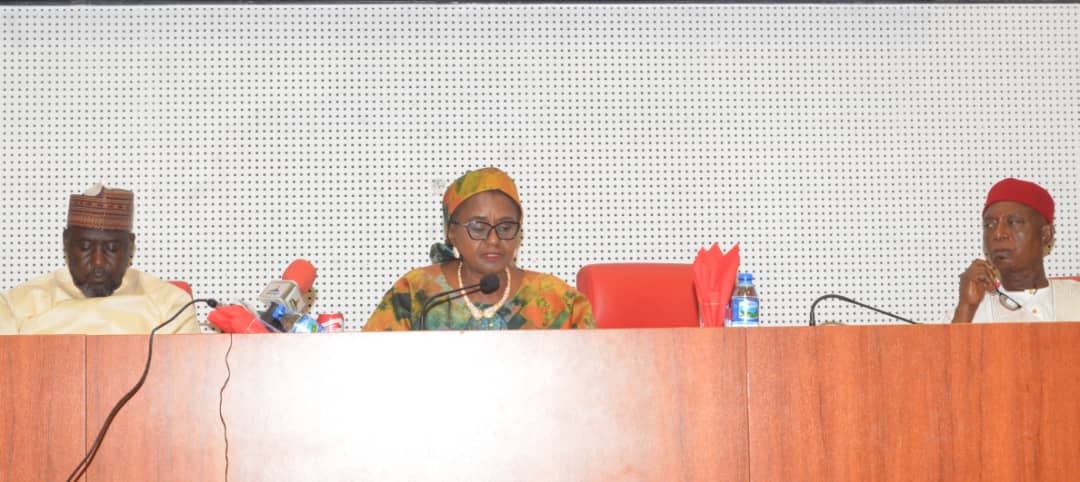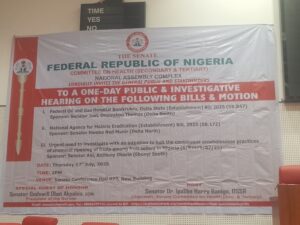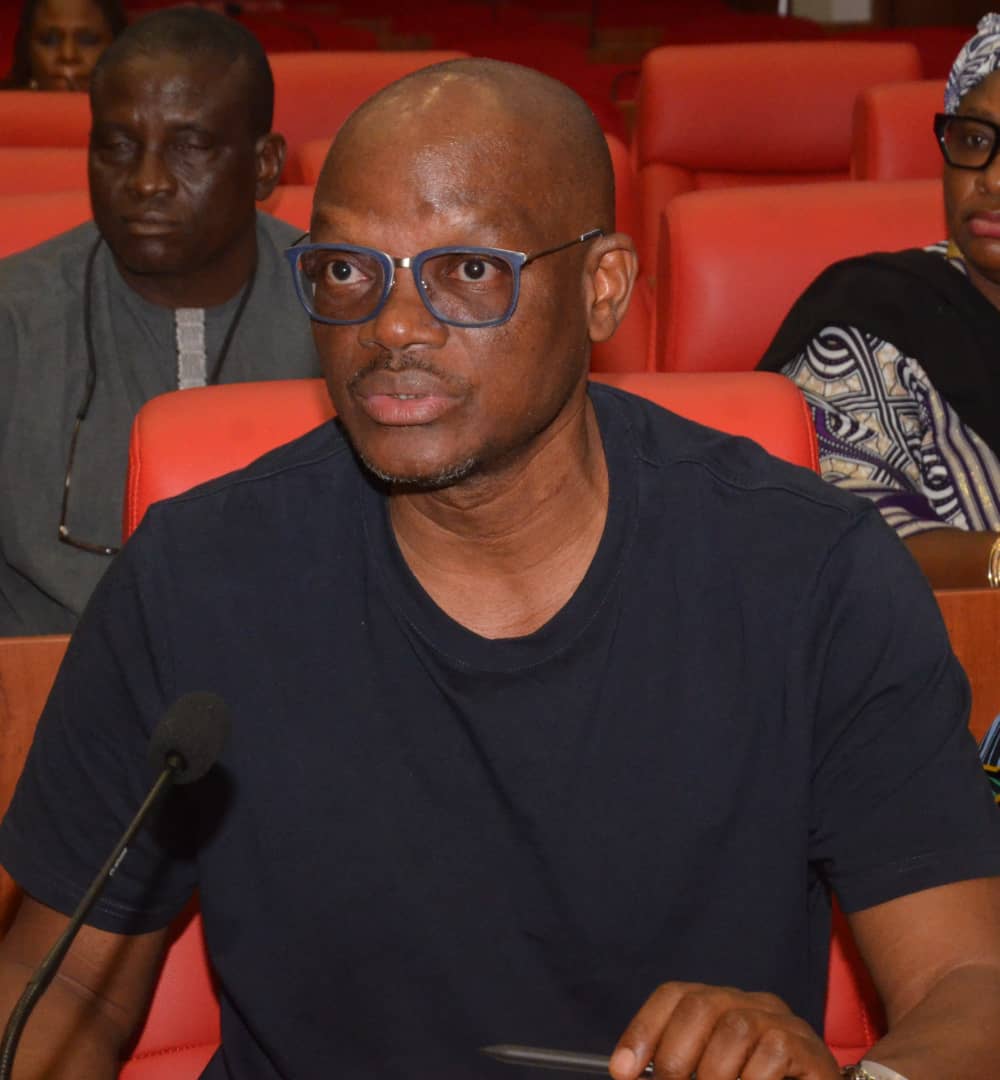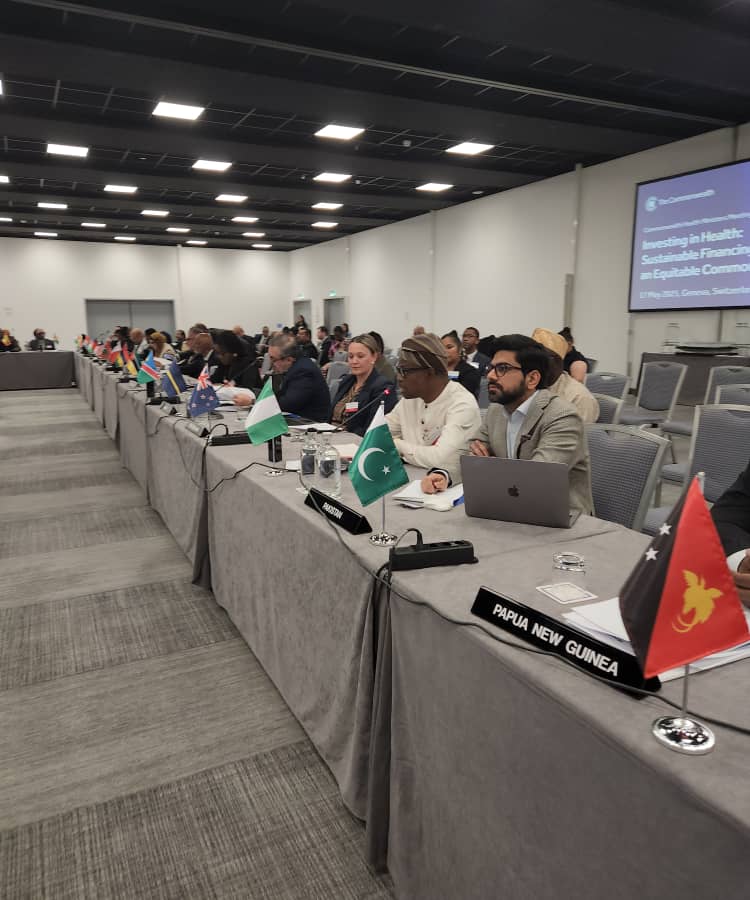
By Fatima Saka
ABUJA – The Senate Committee on Health (Secondary and Tertiary) on Thursday held a robust public hearing focused on three critical health issues, the circulation of toxic fruits, Nigeria’s malaria burden, and healthcare delivery in oil-producing communities.

The proposed Federal Oil and Gas Hospital Benikrukru, the National Agency for Malaria Eradication Bill, and the Motion on Chemical Ripening of Fruits in Nigeria.

The hearing, declared open by Senate President Godswill Akpabio, who was represented by Sen. Bernard Neda Imasuen, describing public hearing as a defining moment in the National Assembly’s commitment to legislate for a healthier nation.
The session witnessed emotionally charged testimonies, particularly on the dangers of chemical fruit ripening, which speakers described as a “public health emergency.” Environmental health officers, chemists, public health experts, and lawmakers expressed deep concern over the unchecked use of carcinogenic substances by fruit sellers to speed up ripening.
“We’re talking about food that should nourish, not kill,” said Winford Joshi, Registrar of the Institute of Chartered Chemists of Nigeria, warning that unregulated chemicals are driving cancer rates up.
Joshi called for strict chemical surveillance and identified the need to cut off the supply chain of unapproved chemicals, describing importers and illegal handlers as the root cause of the crisis.
He praised the Senate for tackling the issue and emphasized that “without chemical surveillance, chemical management is ineffective.” Joshi proposed licensing only certified chemists to handle food-grade substances.
An environmental health officer testified that field investigations in areas like Waru Area Council had uncovered warehouses storing banned substances and chemically ripened fruits.
He lamented the lack of trained regulatory personnel at the local government level and called for the employment of food scientists and environmental health officers, and for full implementation of the 9th Force Food Safety Manual.
“The Constitution mandates us to detect and eradicate nuisances at the local level,” he said. “But how do we enforce existing laws when we lack boots on the ground?”
Beyond food safety, experts turned their focus to malaria, with harrowing statistics and passionate appeals urging legislative urgency. Professor Wellington Nwombo of Lagos State University emphasized the need for in-country financing and likened malaria to a “big masquerade that must be driven out.”
He called for an agency akin to TETFund, but focused solely on malaria, to pool and coordinate domestic funding for long-term elimination strategies.
However, stakeholders cautioned against using the term “eradication,” suggesting the agency be framed around “malaria elimination”, which is more feasible in the current epidemiological landscape. .
Dr. Chioma Amajoh, a malaria researcher, advocated for vector control and community-based interventions, stressing that 50% of malaria transmission occurs outdoors and that current programs have disproportionately focused on clinical treatment.
Isa Adamu, Deputy Registrar of the Environmental Health Council of Nigeria, echoed these sentiments, warning that Nigerians pay a “malaria burden tax” estimated at over a trillion naira annually through repeated treatments, loss of productivity, and poverty exacerbation.
He strongly urged the Senate to include vector management, surveillance, and sanitation as core responsibilities in the proposed agency.
“We have focused too long on treating the disease, not the cause,” he said. “We must beat the donkey, not the saddle.”
Closing the hearing, the chairman of the committee Senator (Dr.) Ipalibo Harry Banigo commended all contributors, stating that while Nigeria already has robust laws, enforcement remains the greatest challenge.
“We have the laws in place, the constitution, the criminal code, the regulatory acts. What is missing is enforcement. Now that we’ve listened to stakeholders, it’s time to act,” she said.
READ ALSO: Northern Youth Congress Backs Oladele’s Appointment, Urges Tinubu to Confirm Him as FCC Chairman
Mrs. Soludo Hails Anambra Students for Clinching Top Awards at UK Global Innovation Contest
The chairman further urged collaboration among agencies to bring violators to justice and protect public health.
The committee reaffirmed its commitment to fast-tracking legislative and regulatory actions on the bills and motion, promising that the Senate will not rest until solutions are implemented.





